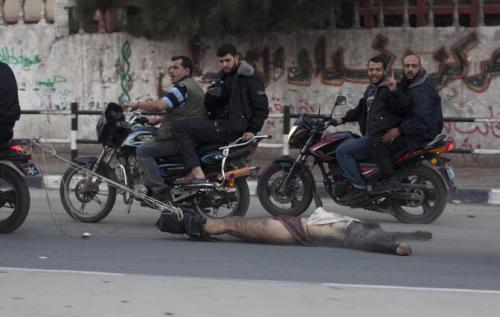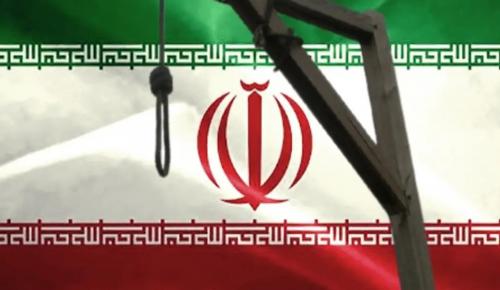21 November 2012 :
Between 16 and 20 November 2012, after Israel launched its latest assault on Gaza called “Pillar of Cloud”, the military wing of the Hamas government brutally and publicly executed seven Palestinians who were accused of spying for Israel. Masked gunmen shot the alleged collaborators in two attacks, killing one person on 16 November and another six people on 20 November.At the time, security officials said one man had confessed to aiding Israel while the six others “were caught red-handed” and “possessed hi-tech equipment and filming equipment to take footage of positions.” However, on 29 November, a Ma'an News Agency review of publicly available records as well as interviews with experts in Gaza showed that all of these men had been in the custody of the Hamas government for months and in one case years before Israel launched its “Pillar of Cloud” operation.
Ashraf Aweida, the first victim, had been held on suspicion of spying but had not been formally convicted before his body was dumped in the street outside Shifa hospital, according to human rights activists in Gaza. The executed man had a poster hung around his neck accusing him of cooperating with the Israelis in the killing of 15 Palestinian leaders. “They took him out from the Jeep with his hands cuffed behind his back and fired three gunshots at his head from the back,” said Wael Mohammed, a taxi driver who was standing on the steps of the Aman Mosque in the Sheikh Radwan neighborhood of Gaza City. “He was still alive. Then they set his cuffs free and turned him upside down and fired on him again.”
The six others who were killed on 20 November had all been formally sentenced to death no later than September. They were killed in the afternoon in Gaza City's Sheik Radwan neighborhood. The Hamas military wing, Izzedine al-Qassam, claimed responsibility in a large handwritten note attached to a nearby electricity pole. Hamas said the six were killed because they gave Israel information about fighters and rocket launching sites. Witnesses said a van stopped in the intersection, and four masked men pushed the six suspected informers out of the vehicle. The gunmen ordered the six to lie face down in the street and then shot them dead one by one. One man spat at the corpses, another kicked the head of one of the dead men. One body was then tied by a cable to the back of a motorcycle and dragged through the streets. A number of gunmen on motorcycles rode along as the body was pulled past a house of mourning for victims of an Israeli airstrike.
Palestinian human rights activists and a senior Hamas official condemned the killings as illegal, saying the men should have been brought to justice under the law. However, according to public records maintained by the Palestinian Center for Human Rights and other groups, six of the seven men had already had their day in court by the time Israel launched its assault on 14 November.
Three of them – Amer al-Aef, Zuheir Hamouda and Ghassan Asfur – were sentenced to death in 2012. Two others, Ribhi Bedawi and Fadel Abu Shalluf, received the same sentence in 2011. The sixth victim, Naim Ashur, was convicted of treason in March 2010, according to the Independent Commission for Human Rights, the Palestinian Authority’s official rights ombudsman.
“Prior to the attack on Gaza they were all in custody,” said Handi Shakura, the director of the Palestinian Center for Human Rights’ democracy development unit, in an interview. “We have no information as to whether they were released or handed to militants. We are waiting for the results of the government committee. We are hopeful we will see a real investigation and action by the government,” Shakura told Ma’an.
The circumstances of how these seven men were removed from their jail cells and ended up dead on Gaza City’s streets remain unclear. Taher al-Nunu, a spokesman for the Hamas government, promised a full investigation into the killings, which he described as unlawful.
However senior Hamas leader Mahmoud al-Zahhar dismissed criticism from Palestinian human rights groups. “We will not allow one collaborator to be in Gaza, and let human rights groups say whatever they want. A human has rights if they have honor and not if they are a traitor,” he said on 24 November. The remarks followed condemnation by the deputy chief of Hamas, Mousa Abu Marzouq, who said the killings were “not acceptable at all,” and demanded that those responsible be held accountable. Such an incident “must never happen again,” he said.
(Sources: Ma’an, 29/11/2012)











